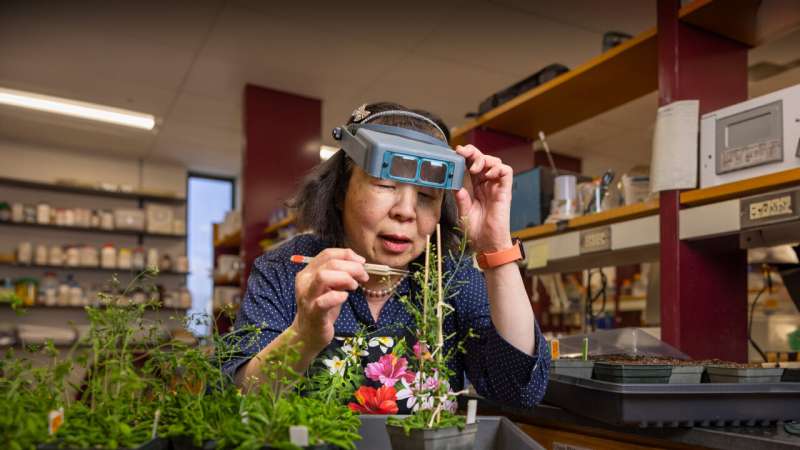A groundbreaking study published on November 21, 2025, reveals significant insights into plant breeding, potentially paving the way for new crop species. An international team, including researchers from the University of Massachusetts Amherst and Shandong Agricultural University in China, has made strides in understanding how flowering plants distinguish between pollen from their own species and that of distant relatives.
The research, featured in the journal Science, explores the phenomenon of “interspecific incompatibility” (ISI) within the Brassicaceae family, which encompasses common vegetables like cabbage, broccoli, and canola. Many flowering plants have evolved mechanisms of self-incompatibility to prevent inbreeding. This study focuses on the less understood ISI, which prevents cross-fertilization between different species within the same family, such as broccoli and kale.
Understanding Interspecific Incompatibility
Led by Alice Cheung, a Distinguished Professor of Biochemistry and Molecular Biology at UMass Amherst, the team has delved into how plants communicate during the pollination process. They discovered that a protein known as SRK plays a crucial role in this interaction. SRK recognizes a specific chemical signal—termed SIPS—on the pollen grains from other Brassica species that it needs to reject.
Cheung noted, “The molecular workings of ISI remain very much a black box compared to what we know about self-incompatibility systems.” The research team has made significant progress in uncovering these mechanisms and has proposed a breeding strategy to facilitate successful crosses between distantly related Brassicaceae species.
The study reveals that the interaction between SIPS and SRK activates another protein, FERONIA, which has also been a focus of Cheung’s and co-senior author Qiaohong Duan‘s research. This interaction produces a highly reactive chemical known as reactive oxygen species (ROS), which effectively blocks the pollen from entering the pistil, the female reproductive part of the flower.
Implications for Agriculture
The findings offer a promising outlook for agricultural development, as breeding new crop varieties can enhance traits such as yield, disease resistance, and climate adaptability. The ability to cross species within the Brassicaceae family could lead to innovative crops that better meet food security needs globally.
Cheung and her colleagues suggest that understanding and overcoming the incompatibility of Brassica pollen could accelerate the development of hybrid crops. This research not only contributes to the field of plant biology but also holds the potential to impact agricultural practices significantly.
As this study demonstrates, further exploration into the mechanisms of plant breeding may unlock new possibilities for improving crop species, ultimately aiding in food production and sustainability efforts worldwide.
More information on this research can be found in the article “Pan-family pollen signals control an interspecific stigma barrier across Brassicaceae species” published in Science.







